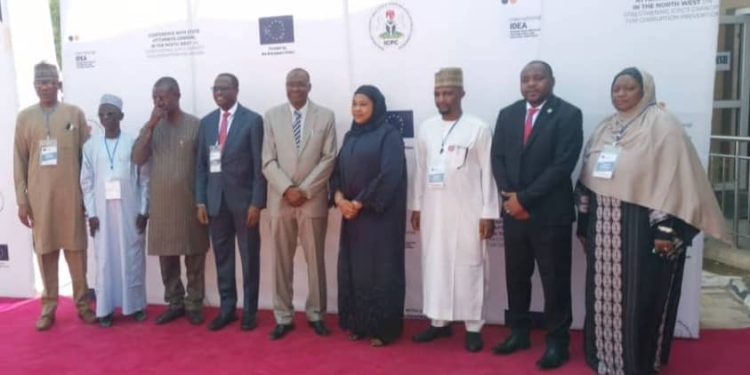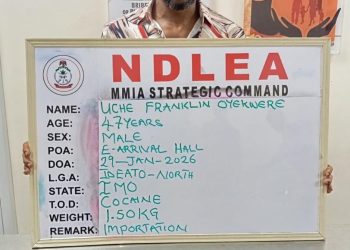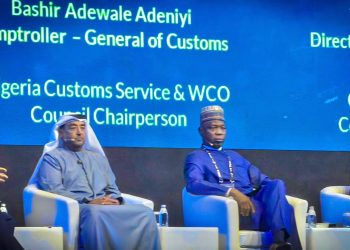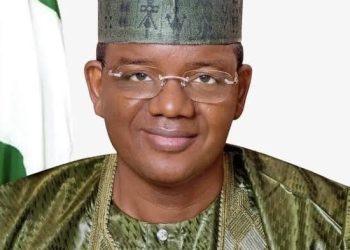By Nkechi Eze
Dr. Musa Adamu Aliyu, SAN, Chairman of the Independent Corrupt Practices and Other Related Offences Commission (ICPC), has urged Attorneys-General from Nigeria’s North-West zone to collaborate with the ICPC. The goal is to strengthen accountability and transparency systems, ultimately benefiting the public.
Dr. Aliyu, made this appeal during a conference in Kano, Nigeria, aimed at fostering a united front against corruption.

While reminding attendees of the Supreme Court’s judgment in AG Ondo State v. AG Federation & 35 Ors (2002), which emphasized the shared responsibility of both state and federal governments in combating corruption, Dr. Aliyu said, “This presents an opportunity to enhance our collaboration, ensuring that the systems we create are accountable and transparent.”
According to him, The ICPC is empowered to investigate and prosecute corruption across all sectors of public service, adding that the support and local knowledge provided by the Attorneys-General are crucial for making the fight against corruption more effective.
“This gathering as vital as it unites key stakeholders at the sub-national level to discuss the necessity of a united front against corruption” he said, and also emphasized that addressing corruption is vital for the nation’s prosperity, asserting that no country can thrive where corruption is prevalent.
Dr. Aliyu referenced the 2023 report “Corruption in Nigeria: Patterns and Trends” by the National Bureau of Statistics (NBS) and the United Nations Office on Drugs and Crime (UNODC), which indicates a significant prevalence of bribery in the North-West region.
This trend, he added, is consistent with findings across Nigeria, particularly within public utilities, law enforcement, and administrative services.
He urged stakeholders in the sector to continue encouraging the people of the North-West to resist demands for bribes, noting a positive development: 70% of Nigerians approached for a bribe in 2023 refused to comply at least once.
Justice Dije Aboki, Chief Judge of Kano State, stated that the fight against corruption is not only a legal obligation but also a moral one, as corruption undermines governance, weakens institutions, and erodes public trust.
She commended the initiative to establish a community of Attorneys-General, which promotes collaboration, shared learning, and the harmonization of strategies across states. She stressed that no single institution can combat corruption in isolation.
Justice Aboki assured that the Judiciary in Kano State remains a steadfast partner in this effort and is committed to upholding the rule of law, ensuring that justice serves as both a shield for the innocent and a weapon against the corrupt.
She also urged lawmakers to expedite the passage of the Whistle Blower Bill, which she believes will further support the fight against corruption.
Mr. Uche Immanuel, the representative of RoLAC, stated that following discussions with the Chairman of the Commission, it was decided to focus on the North-West region as a starting point. He noted that the region is currently leading the charge in combating corruption and institutionalizing systems for transparency and accountability.
Mr. Immanuel emphasized that RoLAC advocates for an inclusive approach to the fight against corruption, asserting that this is the only way to make a meaningful difference.
A conference themed “Establishing a Community of Practice for Attorneys General” brought together attorneys general from seven Nigerian states: Zamfara, Kebbi, Sokoto, Jigawa, Kano,
Kaduna, and Katsina. Additionally, chairmen of state anti-corruption commissions from Kano, Jigawa, Katsina, and Kaduna states were also in attendance.















